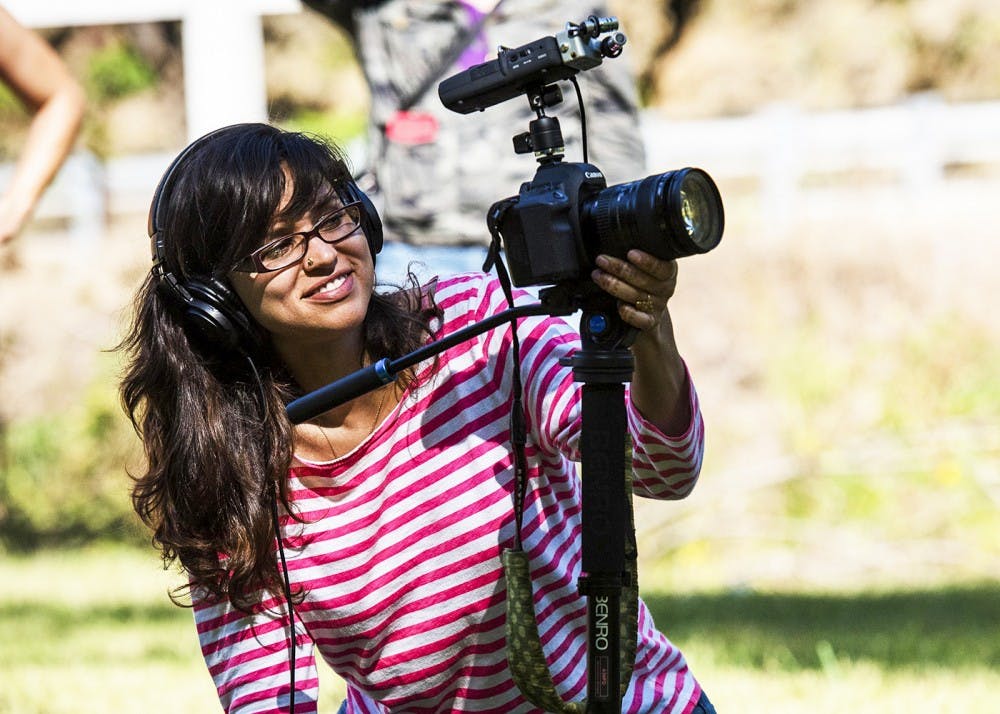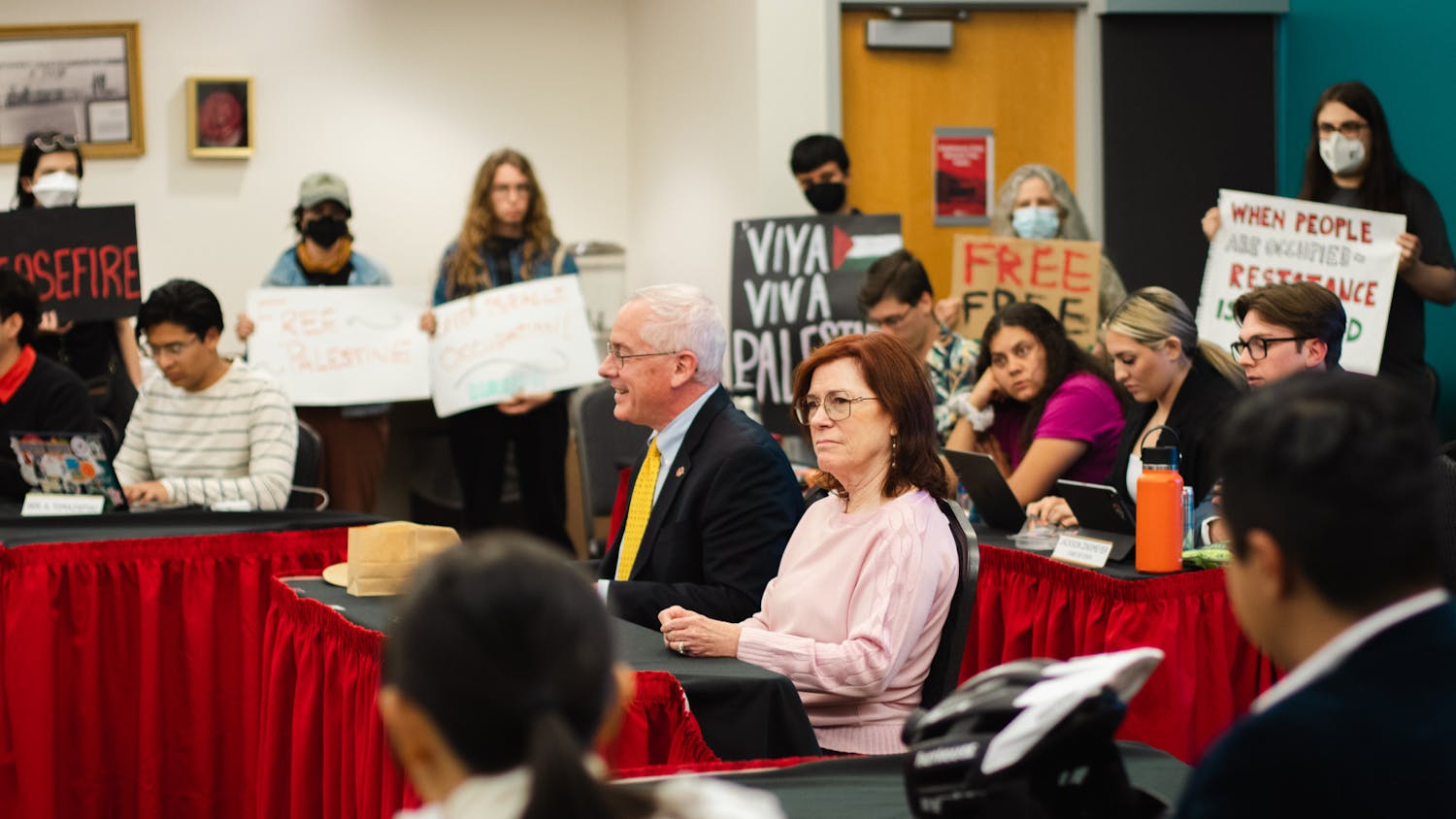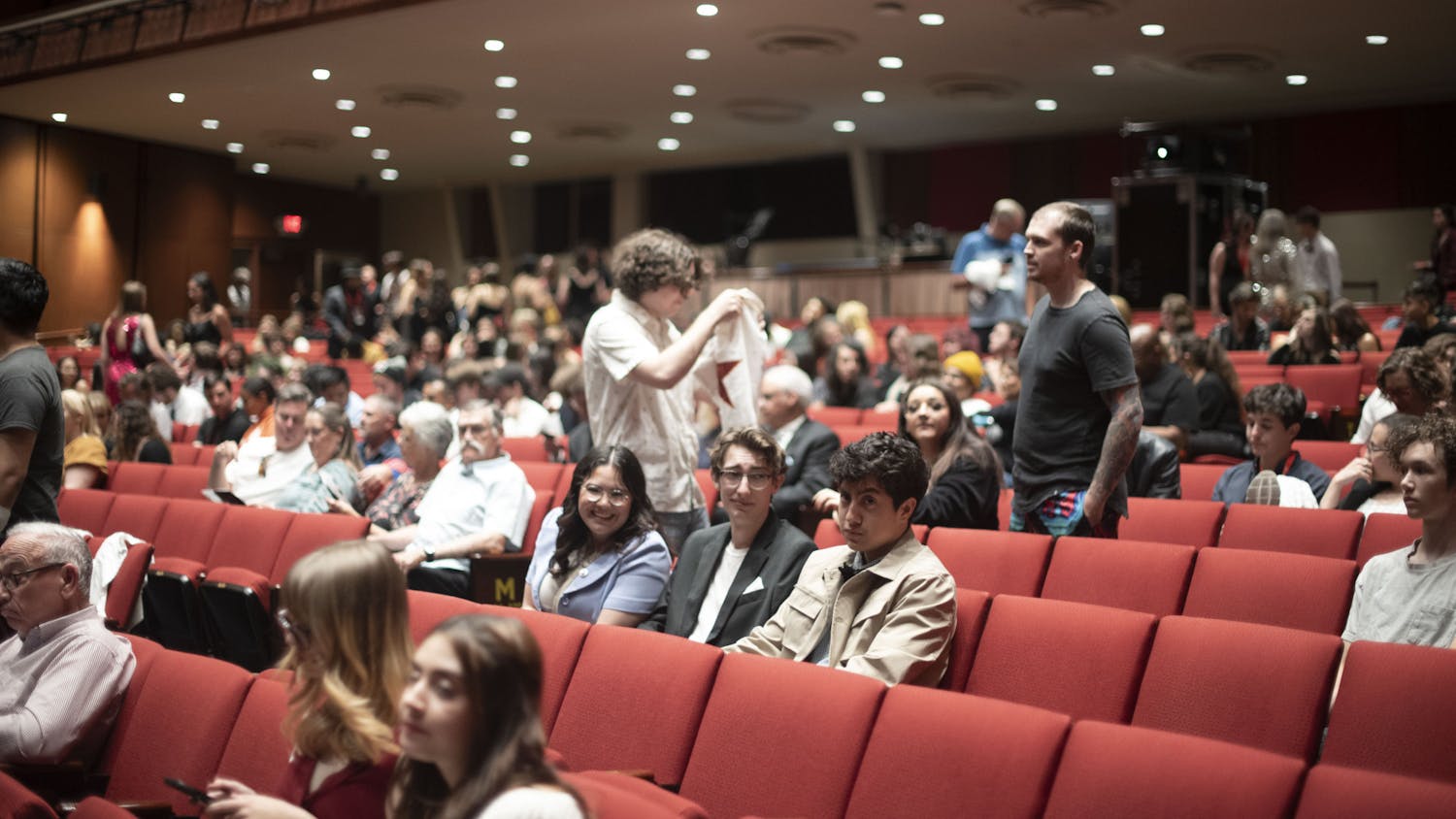It can be tough for some to find examples of how media has impacted and shed light on social justice movements, but students will soon have the opportunity to talk with someone who does it day in and day out.
The Department of American Studies will host documentary filmmaker Barni Axmed Qaasim for a public lecture on Sept. 30 at 1 p.m. in Room 103 of the Education Building. Co-sponsored by the Chicana/Chicano Studies Department and the Southwest Hispanic Research Institute, Qaasim will be presenting on her work with migrant activists.
In collaborating with grassroots organizations to document immigration rights movements, Qaasim has witnessed firsthand the impact media has on issues she is passionate about.
Qaasim’s work, which has been screened nationally, includes “A Little Rebirth,” which documents the Somali community in Arizona, and “Catching Babies,” a documentary about midwives in El Paso that won an Excellence in Documenting Women’s Health award.
“Faces of Garfield,” a photography project, delves into the gentrification of a historic Phoenix neighborhood, and “Puente Vision” is about a family who fights to get their father out of immigration jail.
The Daily Lobo was able to speak with Qaasim before her lecture at UNM.
DL: Can you talk about the Arizona Somali community documented in “A Little Rebirth”?
BAQ: I grew up in Arizona and am part of the Somali community. “A Little Rebirth” was my first documentary. The Somali support group is about refugees who have been here longer helping new arrivals.
DL: Were there difficulties in documenting a community that you’re a part of?
BAQ: When you know a community, you have a different insight. They were just kind of happy with everything I did.
I guess I left the DVD in a local Somali restaurant at the screening. It was a rough cut. The documentary wasn’t even done yet. A couple of weeks later, my sister called me and said, “They’re selling bootlegs of your movie inside Somali stores in Ohio. They’re stealing your work. You should be getting money.”
I was honored to be bootlegged. I was like, “Wow, they like it enough to take it and duplicate it.”
Get content from The Daily Lobo delivered to your inbox
My videos are made to influence people and raise awareness. I want to reach as many people as possible.
DL: What got you interested in social justice issues?
BAQ: I’ve always been interested. Earth’s inhabitants need access to basic human rights, land, water, and the ability to support their families. I don’t know what else I would do with my time.
DL: What I like about your work is that you aren’t documenting issues from a distance. Your Manu Chao video is just like hanging out with Manu Chao. It’s really raw.
BAQ: I’m making films for a movement, not for my career. It’s not about ego, or making videos that are cool. These are videos that get people to come to the protest. It’s a different level of intimacy.
Right now I’m working with Positive Direction, a drug rehab support group. They let me go to their meetings, when meetings are usually about anonymity.
Hanging out with them gives me better access. I want them to understand that I admire the work they’re doing. I’m interested in the story of people who were incarcerated or on drugs for many years of their lives now doing work that transforms lives. I think it’s amazing.
DL: Your biography reads, “Art brings people together in ways that politics can’t.” How does art do that?
BAQ: In my videos and documentaries, I focus on people and stories. I rarely do a story about everything that is wrong with hospital births, or everything that is wrong with immigration policy.
What I do is highlight journeys to show what can be made right. What are alternatives, and other ways we can imagine, as a community, dealing with these problems? I make stories, not essays or arguments. I think that’s what people connect to.
DL: Can you talk about “The Faces of Garfield” and the larger issue of gentrification in historic neighborhoods?
BAQ: Arizona is an aggressive policing state, but because there was this economic shift happening in Garfield, the police were out of control.
Our next-door neighbor was a former state senator; Alfredo Guitierrez, the first Latino elected to state. There was an athlete who won an Olympic gold medal from that neighborhood.
The police were treating the neighborhood like we were all criminals when there were amazing people living there. The real inspiration for the documentary was being treated poorly by the police.
DL: What is the work you’ve done with migrant activists?
BAQ: When SB 1070 became a law in Arizona, police officers could stop people and ask them their immigration status. This came with a wave of incrementally worse and worse anti-immigration laws. My videos mobilized people to protest it.
All of the newspapers were using the word “illegal” to talk about people like that was their identity. The video work was about presenting a different narrative.
A later movement was about undocumented immigrants coming out of the shadows. I helped produce a lot of videos of people declaring, “Undocumented and Unafraid.”
The Not1More Campaign was a bus full of undocumented activists driving from Phoenix all the way to South Carolina for six weeks. You can go to NoPapersNoFear.org to learn about the ‘Undocubus.’ We talked to communities about how we were organizing in Arizona, and asked them how they were organizing. I was videographer.
DL: Can you talk about your Puente Vision project?
BAQ: Puente Vision was about a family whose dad is in immigration jail. The family pays all this money to lawyers to get him out. Everyone was protesting when they saw the video. In less than a week, he ended up getting out.
We started doing more and more and more. Videos went with petitions. We tried to get videos seen in courts and by ICE (U.S. Immigration and Customs Enforcement) judges and city officials.
The first video someone just filmed with their cell phone. Now, it’s like, that’s what you do when you do immigration work. That’s how you can stop individuals from being deported.
Sara MacNeil is a freelance news reporter for the Daily Lobo. She can be contacted at news@dailylobo.com or on Twitter @sara_macneil.






